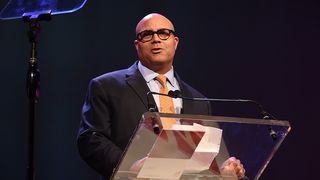NCTA: No Need for FCC's Internet Rules

NCTA: The Internet & Television Association tells the FCC it doesn't see the need for any FCC net neutrality rules against blocking, throttling and paid prioritization given its members' longstanding voluntary adherence to those principles but does not oppose a congressional or Federal Trade Commission backstop.
"[T]here is no basis to conclude that prescriptive rules are necessary in today’s marketplace to preserve the open Internet—or would even be beneficial as a policy matter," it said.
That came in its comments filed Monday on the FCC's proposal to roll back Title II classification of ISPs and rethink those rules.
"As NCTA has made clear, the idea that consumers 'should have the freedom to go anywhere on the Internet or to run any application with confidence that the delivery of traffic will not be blocked or throttled' is one that sits at the foundation of Internet services, reflects how consumers enjoy the Internet today, and despite claims to the contrary, has never truly been in jeopardy."
The association pointed to the FCC's 2004 four "internet freedoms" voluntary principles offered by then FCC chairman and now NCTA president Michael Powell, saying they had since morphed into four tenets embraced by the industry: transparency, no blocking, no throttling and no anticompetitive paid prioritization.
NCTA said that while it does not see a problem that needs a government fix, "to the extent the Commission deems a regulatory backstop necessary, NCTA does not oppose measures enabling federal enforcement of open Internet principles."
That would be either via legislation that settles the FCC's authority to regulate or by the Federal Trade Commission enforcing ISP openness pledges via its authority to sue companies that violate such public pledges.
Broadcasting & Cable Newsletter
The smarter way to stay on top of broadcasting and cable industry. Sign up below
NCTA also says that in the unlikely event that ISPs did act anticompetitively, the FCC would still have authority under Sec. 706 (Title I) to take "appropriate action."
Whatever the FCC does, says NCTA, it should apply to wireless and wired broadband. It also says the FCC should make it clear that it will preempt any attempts at state or local broadband regulation—in case, as with the broadband privacy rules—states attempt to adopt their own versions of the Title II-based Open Internet order.
"[T]he Commission should reaffirm that state and local efforts to regulate BIAS are preempted in light of (1) the service’s inherently interstate nature, and (2) its proper classification as an information service."
Initial comments on the FCC proposal were due July 17. Replies are due Aug. 16.
Contributing editor John Eggerton has been an editor and/or writer on media regulation, legislation and policy for over four decades, including covering the FCC, FTC, Congress, the major media trade associations, and the federal courts. In addition to Multichannel News and Broadcasting + Cable, his work has appeared in Radio World, TV Technology, TV Fax, This Week in Consumer Electronics, Variety and the Encyclopedia Britannica.

